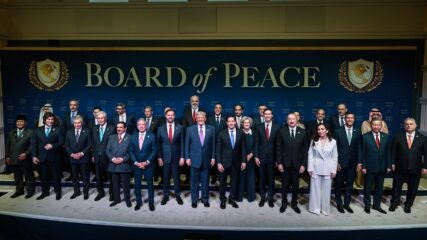July 20, 1951
Abdullah I, the founding king of Jordan, is assassinated by a Palestinian nationalist at the Al Aqsa Mosque entrance in Jerusalem. The king’s bodyguards immediately shoot the assassin dead. Abdullah’s grandson, Hussein, succeeds him.
Born in Mecca in 1882 to the Hashemites, who claim direct descent from the prophet Muhammad, Abdullah was one of the leaders of the Arab Revolt against Ottoman rule during World War I. When Arab unity broke down after the war, he nearly attacked French forces in Damascus to help his brother Faisal, who was proclaimed king in Syria in 1918, but Winston Churchill persuaded Abdullah to stop. When Abdullah declined an offer of Iraq’s monarchy in 1920, Faisal became Iraq’s king. Abdullah instead established the emirate of Transjordan in 1921 in the portion of British Mandatory Palestine east of the Jordan River. When Transjordan was granted its independence in 1946, Abdullah became its first king.
Abdullah, who dreamed of ruling a greater Arab state extending to Syria and Lebanon and across the Jordan, supported the Peel Commission’s partition proposal in 1937 and was the only Arab leader to back the U.N. partition plan in 1947, with the hope of annexing the Arab areas. He held secret talks with Golda Meir about keeping his army out of the fight against Israel but concluded in early 1948 that he had to go along with his neighbors. He sent his Arab Legion across the Jordan more than a week before Israel declared independence. During Israel’s War of Independence, his forces occupied what became known as the West Bank and eastern Jerusalem, giving him control of the city’s holy sites.
His decision to annex the conquered territory led to the change in the country’s name to Jordan but was not recognized by the international community. The annexation angered Palestinian Arabs, including a member of the clan of the former grand mufti of Jerusalem named Mustafa Shukri Ashu, who is 21 when he fatally shoots Abdullah.










